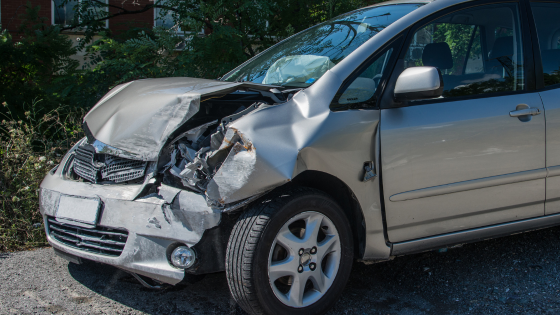Your car is damaged in a crash – but you weren’t the one driving. Now you’re wondering whether you’re going to be on the hook for the costs. Depending on the details of the situation, you could be held liable, and your insurance rates could increase. However, there are a few factors to consider if a friend crashes your car.
Was the Person Who Drove Your Car At-Fault?
Hawaii is a no-fault state for car insurance. This means that each person’s personal injury protection coverage pays for their own injuries and the injuries of their passengers, regardless of who caused the crash. However, at-fault drivers can still be sued for serious injuries. Also, at-fault rules only apply to injuries, not property damage. The driver who caused the crash is financially responsible for the property damage inflicted on the other party.
Based on this, if the person who crashed your car was NOT at fault, you should only have to worry about personal injury costs for the driver and any passengers in your car. However, if the person who crashed your car WAS at fault, you also have to consider property damage to both vehicles involved, and potentially additional costs if the injuries are serious.
It’s also possible that the other driver is at fault but does not have insurance. In this case, your underinsured or uninsured motorist coverage could come into play.
Did You Give Permission?
If you let a friend drive your car and that friend gets into a crash, your insurance will likely have to cover the loss. If your car is damaged and you have collision and comprehensive coverage, the repairs should be covered under the terms of the policy, but you may have to pay a deductible. You may also see your car insurance rates increase because of the claim.
If you did not give permission, you may be able to avoid liability. However, your insurance may still have to cover some of the associated costs. For example, let’s say you consider your car stolen and file a police report. The thief crashes your car, causing significant damage. In a situation like this, your comprehensive and collision coverage would be triggered.
Does the Driver Have Coverage?
Let’s say that your friend causes a crash, but he has his own car insurance. Your car insurer will still likely have to pay for the liability claims because car insurance typically covers the car rather than the driver.
However, it’s possible that the liability claims will exceed your policy limit. In Hawaii, drivers are only legally required to carry $20,000 per person/$40,000 per accident in bodily injury liability and $10,000 in property damage liability. A crash can cause losses far greater than that. If this happens, both your car insurance and your friend’s car insurance may share the responsibility.
Is the Driver Excluded from Your Policy?
Some policies exclude certain drivers from coverage. For example, you may have a high-risk driver in your household who is covered under a separate insurance policy, and your policy has a named exclusion listing this driver as ineligible for coverage. If this excluded driver crashes your car, your insurance company can deny any resulting claims. If the excluded driver’s insurance has lapsed or can’t fully cover the losses, there may not be sufficient coverage.
Avoiding Problems
You might not think twice about lending your keys to a friend, but if there’s an accident, you may come to regret your generosity.
- Be careful about who you allow to drive your car. Hopefully, you wouldn’t drive while drunk or distracted, and you shouldn’t let other people drive your car while drunk or distracted, either.
- If someone drives your car frequently, they may need to be added to the policy. Talk to your insurance agent.
- Consider adding comprehensive and collision and underinsured/uninsured motorist coverage. If you couldn’t afford expensive repairs out-of-pocket, these coverages can provide important financial protection.
- Consider raising your limits. Hawaii’s legally required liability limits are fairly low. Let’s say you only have $10,000 in property liability coverage, and you (or a friend) totals a car worth $40,000. You’re looking at $30,000 that’s not covered by insurance. Raising your limits increases your financial protection.
Do you need help reviewing your car insurance needs? Find an agent.

